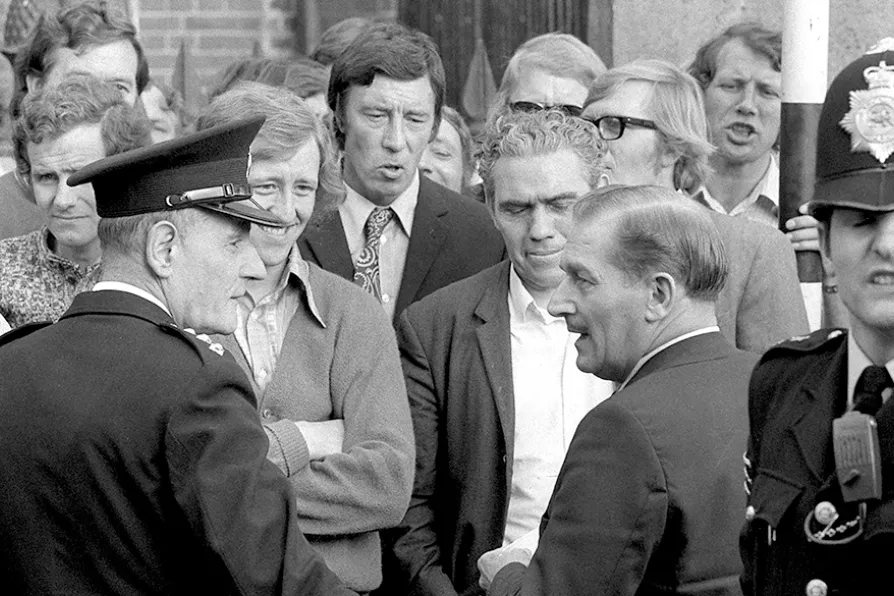VIJAY PRASHAD details how US support for Syrian President Ahmad al-Sharaa allowed him to break the resistance of the autonomous Syrian Democratic Forces (SDF)

 STATE v WORKERS: Docker Vic Turner (centre), one of the Pentonville Five, is being escorted into Pentonville Prison by the High Court Tipstaff after his arrest at the dockers' picket line outside the prison
STATE v WORKERS: Docker Vic Turner (centre), one of the Pentonville Five, is being escorted into Pentonville Prison by the High Court Tipstaff after his arrest at the dockers' picket line outside the prison
AS THE struggle of the Pentonville Five 50 years ago is commemorated tonight at East Ham Town Hall, it is a timely reminder that British trade unions have never been free: they have always been treated with suspicion, and they have always operated in the shadow of the criminal law, penal sanctions, and the watchful eye of the state.
Suspicion has been tailored into our law since time immemorial, and remains there to this day.
That suspicion has periodically turned to hostility and oppression as trade unions have challenged the authority of the state by protecting their members’ interests in the face of government injustice.

It’s not just the Starmer regime: the workers of Britain have always faced legal affronts on their right to assemble and dissent, and the Labour Party especially has meddled with our freedoms from its earliest days, writes KEITH FLETT

KIM JOHNSON MP places the campaign in the context of the history of the working-class battles of the 1980s, and explains why, just like Orgreave and the Shrewsbury Pickets before it, justice today is so important for the struggles of tomorrow

In an address to the Communist Party’s executive at the weekend international secretary KEVAN NELSON explained why the communists’ watchwords must be Jobs not Bombs and Welfare not Warfare











